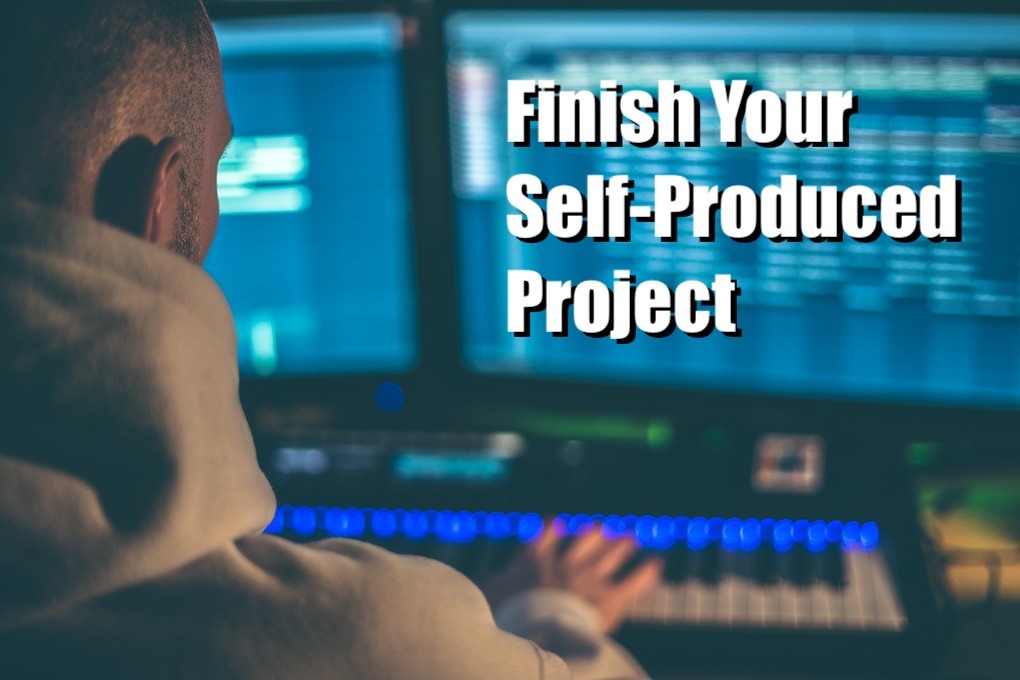- in Book Excerpt , Production by Bobby Owsinski
2 Words That Will Help You Finish Your Self-Produced Project

Every musician today has a their own home studio. While that makes recording yourself easier than ever before, most find that it’s a lot easier to start a self-produced project than finish one. Here’s an excerpt from the 2nd edition of my Music Producer’s Handbook that provides a way to finish those self-produced projects by remembering 2 simple words.
Self-Production is simultaneously one of the most difficult things to do in music and at the same time perhaps one of the easiest. Every artist hears what their music should sound like in their head (that’s the easy part), but it’s sometimes difficult to get it to actually sound that way when it comes to real-life recording.
For many singer songwriters, that can lead the artist to overwork a song until it’s limp like a dishrag, or overproduce it until it has so many layers that it sounds like there’s a 30 piece band backing you up. Indeed, it’s difficult to get it to sound somewhere in between where your project is both exciting and vital, and still meets your vision.
For many artists, working in a vacuum can sometimes lead to new discoveries since you’re not beholden to any previously learned “rules,” or it can lead to frustration from not being able to get the sound that you want and not having anyone to turn to for help.
Let’s look at some ways to stay out of the self-production rut.
Self-Produced Shouldn’t Mean Never Ending
One of the biggest problems for an artist is creating in circles. This means that the artist has so many good ideas that the production is never finished. As soon as a version is complete, the artist thinks, “Maybe the middle 8 should have a ska feel.” Then after that’s recorded he thinks, “Maybe the entire song should have a ska feel.” Before you know it there are versions in 6/8, speed metal and reggae (and maybe more), with each one sounding different, but not necessarily better
If this is what’s happening to you, there are two words to keep in mind to help you out of your rut.
Instinct – Usually, the very first inspiration is the right one, especially if you’ve gone through more than a couple of different versions. You’ve got to repress the urge to keep changing things and learn to follow your initial instinct. That doesn’t mean you shouldn’t tweak or perfect what you’re doing; it means that you shouldn’t make a completely opposite turn in a direction that goes against your initial inspiration.
The exception to this is if you think it might be cool to have multiple different versions of the song available so you can give the alternate versions to your core fans as an exclusive gift, use them as a promotional vehicle, or because it’s been specifically requested by a music supervisor for a television show or movie. In any of those cases, a wholesale change in direction can actually be particularly useful and even profitable.
Deadline – One of the biggest problems with producing yourself is the fact that your project is usually open-ended time-wise. As a result, you end up with the “project that won’t end” that keeps going for years (no exaggeration here).
The surest way to keep that from happening and to actually accomplish something is to set a deadline for the project’s completion. Many people do their best work on deadlines because they don’t have a chance to second guess themselves.
The final product may not be 100% of what you want, but remember that it seldom ever is, even with all the time in the world available to finish the project. Save yourself some heartache and impose a deadline on yourself so you can finish that project and get it out the door where it can do you some good.
I spoke to an artist recent who said that he had at least a hundred self-produced projects started, but none yet finished. Remember those 2 simple words so that won’t happen to you.
You can read more from The Music Producer’s Handbook and my other books on the excerpt section of bobbyowsinski.com.

